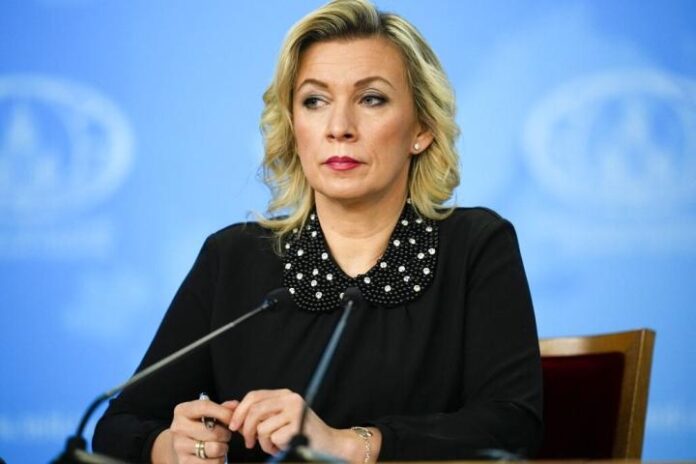Russia on Tuesday rejected the Republic of Moldova President’s claims about an alleged plot by Moscow to overthrow her government and accused Moldovan authorities of trying to distract public attention away from the country’s own domestic problems, according to AP News.
The Republic of Moldova’s President Maia Sandu said Monday that the purported Russian plot envisioned attacks on government buildings, hostage-takings and other violent actions by groups of saboteurs in order to put the nation “at the disposal of Russia” and derail its hopes to join the European Union.
Responding Tuesday, Russia’s Foreign Ministry spokeswoman Maria Zakharova dismissed Sandu’s claims as “absolutely unfounded and unsubstantiated.”
“They are built in the spirit of classical techniques that are often used by the United States, other Western countries and Ukraine,” Zakharova said. “First, accusations are made with reference to purportedly classified intelligence information that cannot be verified, and then they are used to justify their own illegal actions.”
Sandu’s claim came a week after neighboring Ukraine’s President Volodymyr Zelenskyy said his country had intercepted plans by Russian secret services to destroy Republic of Moldova. Moldovan intelligence officials later said that they confirmed the allegations.
Zakharova charged that Ukrainian authorities made up the claim about a purported Russian plan to destabilize the Republic of Moldova in order to draw it into a confrontation with Russia. She argued that Moldovan authorities used “the myth about a Russian threat to distract Moldovan citizens’ attention from internal problems resulting from a disastrous social-economic course of the current administration and to step up the fight against dissent and political opponents.”
Zakharova insisted that Russia poses no threat to Republic of Moldova and hopes to develop mutually beneficial cooperation.
In December, Republic of Moldova’s national intelligence agency warned that Russia could launch a new offensive with the aim of creating a land corridor through southern Ukraine to Moldova’s Moscow-backed breakaway region of Transnistria.
Transnistria broke away after a 1992 civil war but is not recognized by most countries. It extends roughly 400 kilometers from the eastern bank of the Dniester River to the country’s border with Ukraine. Russia has about 1,500 troops nominally as “peacekeepers” in the breakaway region.


